Resonant Voices Radar exposes false, biased or manipulated online content that feeds division and mobilizes support for groups and causes that threaten public safety, human rights, and democracy.
The Resonant Voices Radar’s team monitors the digital ecosystem of open online channels that produce and disseminate misinformation, partisan and extremist propaganda, hate speech, unsubstantiated claims, and other dangerous online messages that spread across borders, languages, and platforms, affecting transnational diaspora communities.
In January 2020, the Resonant Voices Radar analyzed the resonance and reach of the following stories:
The Far-Right Threatens Austria’s Minister of Justice Alma Zadic
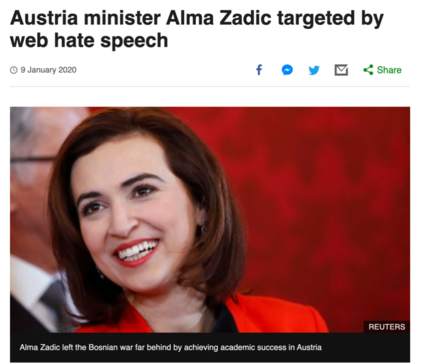
Austria’s newly instated Minister of Justice Alma Zadic and refugee from Bosnia has become a major target of conspiracies and threats from far-right extremists across Europe. Users on Facebook, Twitter, YouTube and commenters on articles falsely accused her of having ties to terrorists and posted hateful comments against Muslims.
Most concerningly, far-right politicians from Slovenia’s Homeland League (DOM), the Freedom Party of Austria (FPO) and Europe’s Identarian movement helped spread these false or extreme stories about her to advance political platforms.
Austrian media stated that Zadic had received 24/7 police protection in response to online hate speech. This demonstrates how extreme rhetoric in one country can be damaging to regional security, as it fuels hatred throughout Europe.
Online Platforms Push Disinformation Ahead of Croatia’s Presidential
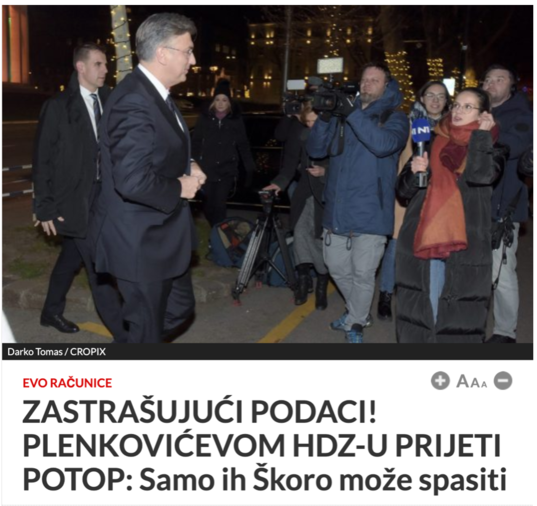
Croatian news outlets and social media accounts spread disinformation ahead of Croatia’s second round of presidential elections.
Right-wing media outlets in Croatia, such as Dnevno and Kamenjar, glorified former far-right candidate Miroslav Skoro, while promoting false conspiracies that candidate Zoran Milanovic was “cozying up with [Russia’s President Vladimir] Putin.”
Facebook pages targeting the Croatian diaspora in Germany and Austria shared these and other sensationalist stories that called on voters to “stop the Communists.” The most popular posts generated over 150,000 engagements on Facebook and Reddit, some of which showed signs of bot-like activity with repeated shares of the same content in multiple languages.
Overall, the promotion of disinformation polarizes and manipulates communities in Croatia.
Outlets Promote Nationalism in Coverage of Montenegro’s Religion Law
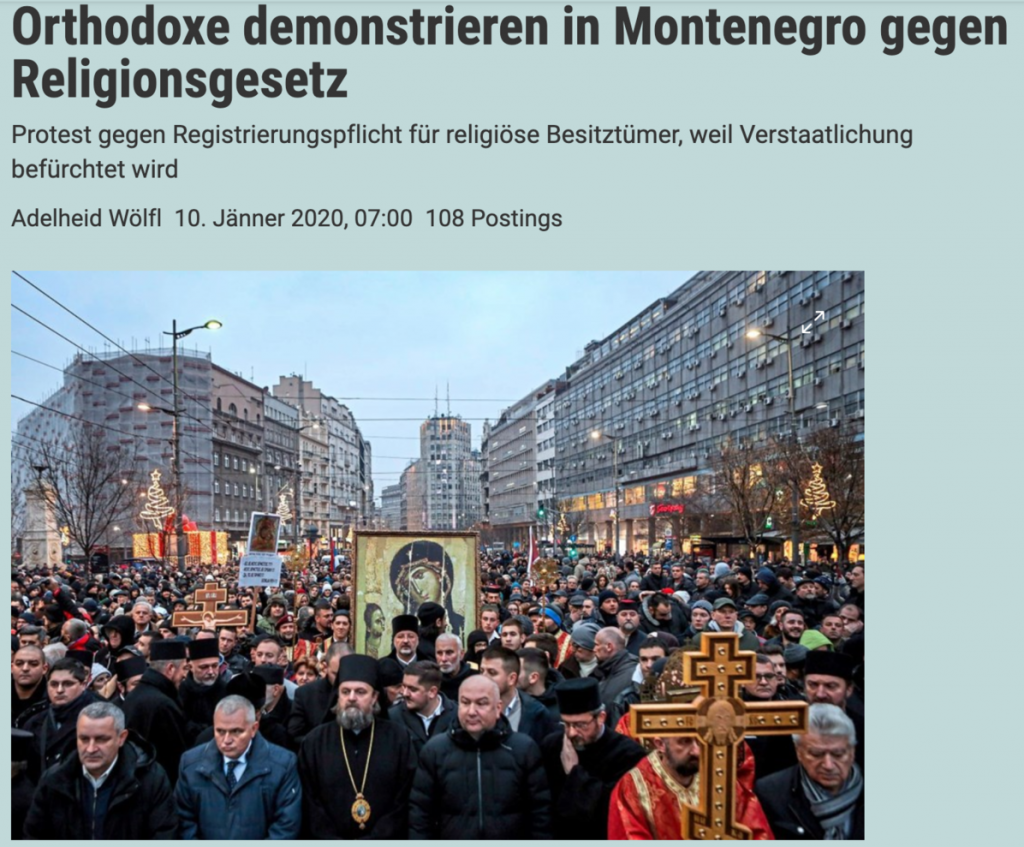
Media outlets based in Montenegro and Serbia, including Informer and Borba, published sensationalized articles about Montenegro’s law on religious property and related protests.
The articles promoted an inflammatory speech by Serbia’s Minister for Technological Development Nenad Popovic and nationalistic coverage of recent protests in Montenegro and Serbia. The outlets’ posts on Facebook and articles beyond the Balkans also produced nationalistic comments that promoted anti-Serbian and anti-Montenegrin positions.
As a whole, the inflammatory discourse surrounding the new law only deepens divisions in the Western Balkans and prevents people from engaging in more constructive ways.
Serbian Media Distorts Serbia-Kosovo Agreement
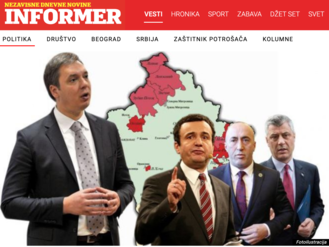
Serbian media outlets published nationalist propaganda about the recent agreement to re-open air travel with Kosovo.
One of these articles published by Informer claimed that Serbia had won a “diplomatic war” against Kosovo in reference to its policy of non-recognition. In fact, the agreement did not concern this policy and both governments continue to negotiate.
Facebook pages also shared misleading information to promote a nationalist agenda among Serbian readers. This false content attempts to inflame nationalism in Kosovo and Serbia by distorting divisive issues. In effect, it threatens to hinder ongoing cooperation between the two countries.
Social Media Spreads Video of Christmas Provocations in Bosnia
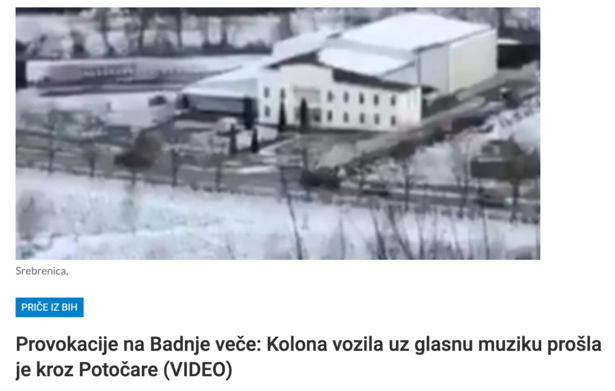
Users on Facebook and Twitter shared footage of people in eastern Bosnia celebrating Orthodox Christmas Eve with gunfire, hateful songs and icons reminiscent of the Bosnian War.
The area has a history of provocations around Christmas that have instilled fear particularly among Bosniaks who returned to the area after the war.
Some users replied with intolerant remarks against different ethnicities and religions in the Western Balkans. As a result, the comments projected the hate of the original act to a larger online audience. They not only provoke anger among readers, but are counterproductive to post-war peace.
Online Discussions Mischaracterize Serbia-Slovenia Agreement
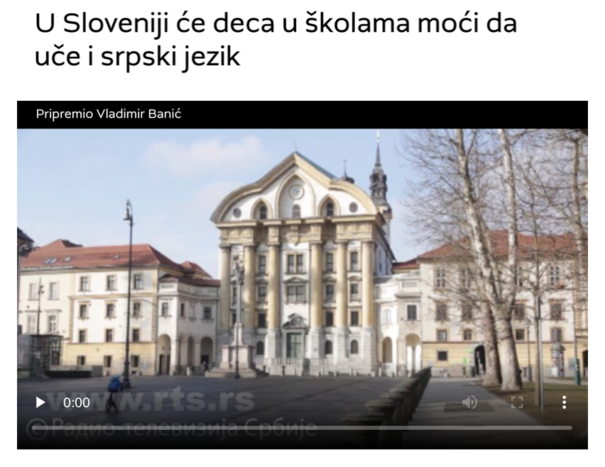
Online commenters spread nationalistic and misinformed ideas about Serbia and Slovenia’s recent agreement to offer the Serbian language in schools across Slovenia. In particular, the Serbian media outlet RTS attracted nationalistic comments on its coverage of the agreement. These ranged from mocking the decision to verbally attacking other nationalities.
Users on Twitter also spread misinformation with reference to the article. One common deceitful message claimed that the government of Slovenia refused to recognize Serbs as a minority, which contradicted the implications of the agreement.
These false narratives only entrench hardline opinions in Serbia and Slovenia and undermine the evident cooperation between the two countries.
Incidents in Hungary and Bosnia Draw Anti-Migrant Comments
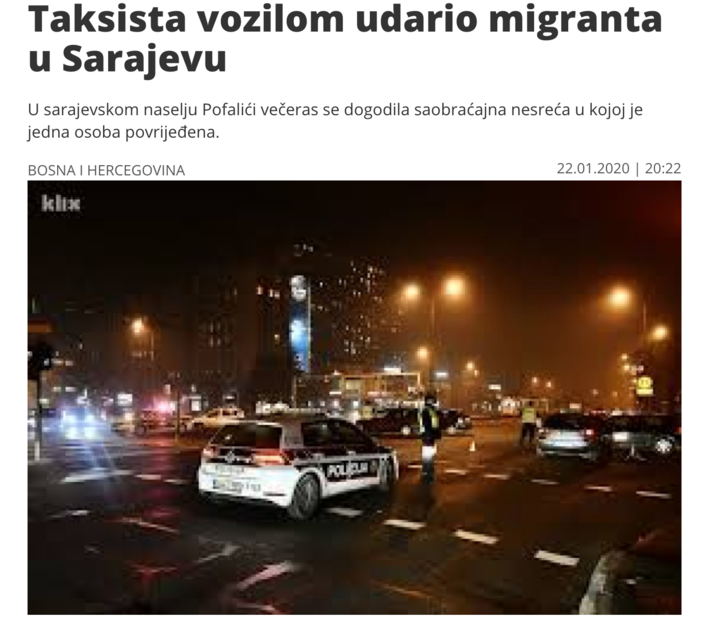
A car accident and shooting involving migrants sparked xenophobic commentary online.Reports of a taxi driver hitting a migrant in Sarajevo on Radio Televizija BN and Klix attracted comments from users primarily from Sarajevo. Many posts were Islamophobic and even encouraged further violence against migrants.
A shooting on the Serbia-Hungary border, in which authorities responded to a crowd of over 60 migrants with gunfire, generated similar reactions.
Their rhetoric also demonized migrants as security threats or criminals. They consequently incite hatred towards an entire group of people out of baseless claims.
The Balkans Reacts to Shooting in Greece
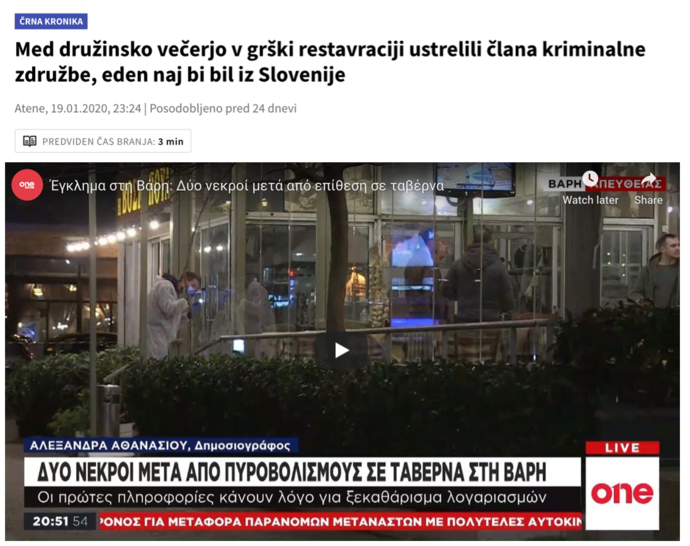
Media outlets across the Balkans reported on a shooting in Athens that killed one person from Slovenia and one from Montenegro. The incident triggered a wave of nationalistic and hateful reactions throughout the region.
Many users made offensive generalizations about people from other Balkan countries or tried to present one nationality as superior.
These types of generalizations are irrational and overlook the diversity of their own countries. By positioning different people against one another, they risk playing into broader narratives used to oppress others.
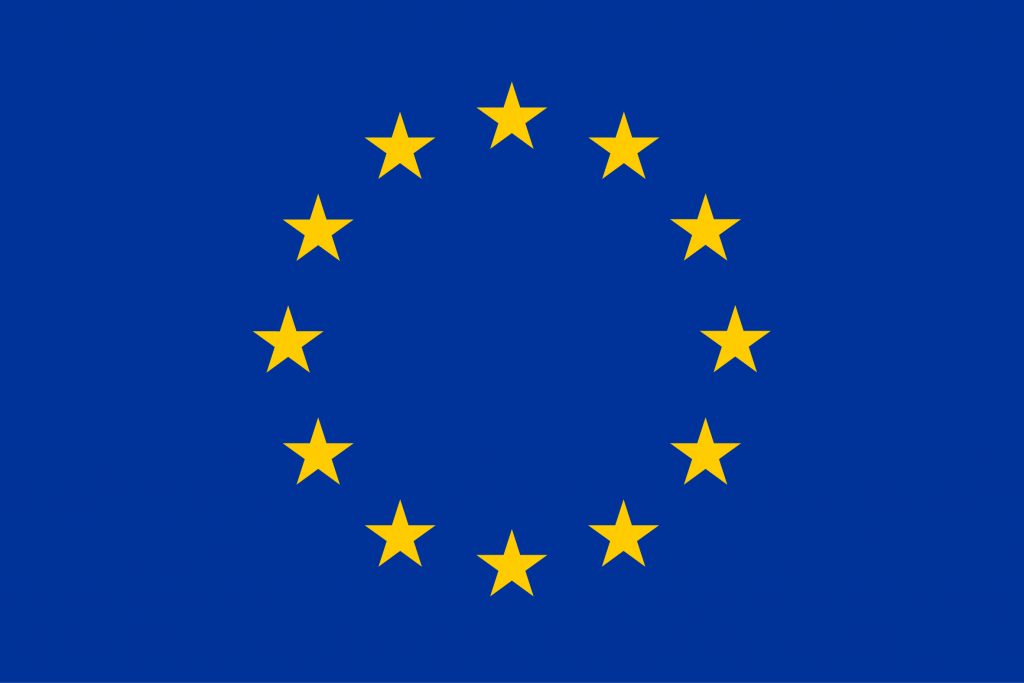
The Resonant Voices Initiative in the EU is funded by the European Union’s Internal Security Fund – Police.
The content of this report represents the views of the Resonant Voices Initiative’s media monitoring team and is the sole responsibility of the Resonant Voices Initiative. The European Commission does not accept any responsibility for use that may be made of the information it contains.
